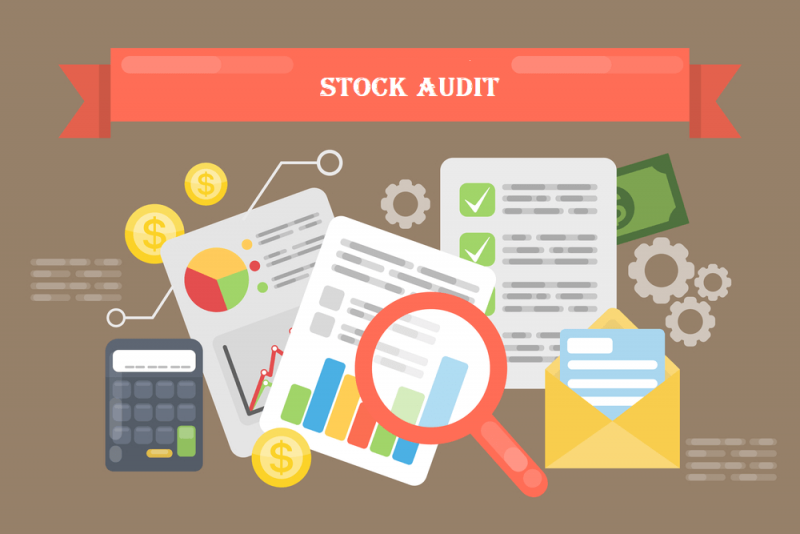Stock Audit
A stock audit is a procedure that a company must carry out at least once every financial year. As far as the stock audit procedure is concerned, it mostly entails counting physical stock and comparing it to computed stock stored by the company. The goal of doing so is to fix the discrepancy between book and physical stock by passing relevant adjustment entries.
Advantages
- An audit aids in the identification of accounting system flaws and allows auditors to make recommendations for change.
- An audit ensures that the firm is operating in accordance with the information received by directors who are not involved in the accounting duties on a day-to-day basis. It also aids in the prevention of fraud.
- An audit allows for the giving of advice that can result in genuine financial benefits for a company, such as how the company is operating, what margins can be expected, and how these can be accomplished. Internal controls can be tightened, tax planning can be done, and the risk of fraud can be reduced.
The legitimacy and trustworthiness of the data presented to potential investors will be enhanced by an audit. Regular audits are quite useful if an owner intends to attract investment or sell shares in the next three years.
Importance of Stock Audit
A stock audit is an accounting procedure that determines a company’s total stock of physical items or raw resources. This procedure is particularly significant in manufacturing and retail businesses with several sites. The stock audit allows you to keep track of how much physical inventory you have left and make the appropriate arrangements to order new stock. A stock audit will make inventory management easier if the organisation deals with a variety of vendors and suppliers.
As more businesses enter the global market, business owners and stakeholders must discover creative ways to grow their businesses. Organizations should conduct timely stock audits in order to reduce operational costs and improve business performance. The earnings of a corporation is directly proportional to its inventory level. An inaccuracy in an inventory report can result in higher costs for the company. Although the stock audit of essential physical inventories is generally conducted at or near the end of the year, it is better to carry out the audit in specified time intervals to ensure continuity of business operations. The availability of raw materials is a critical aspect to consider in manufacturing companies. Stock audit is also useful to keep an account of the quantity and quality of raw materials.
At RAAAS, we assist our clients with various Audit matters (Internal Audit, Audit & Assurance) and Taxtion by providing them with adequate support and guidance from our end. If you have any questions or would like to know more about works contract, kindly contact us.

